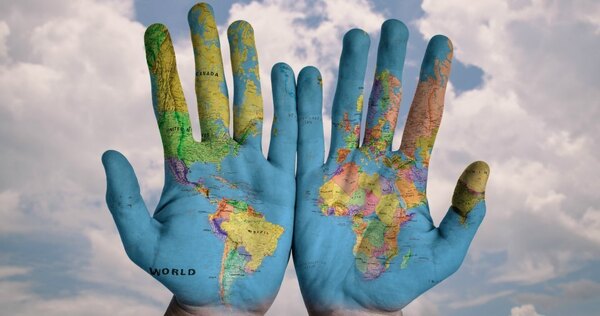
Deadline for Submission: March 30, 2017
Project Summary

The Anthropocene, a term for a geological epoch characterized by unprecedented human transformation of the planet, originated in earth systems science and has since captured the imagination of many humanists. Discourse on the Anthropocene probes the meaning of humanity’s role and agency within deep time and planetary evolution. It therefore raises religious and ethical questions about how to understand humanity’s place within planetary evolution, and how to envision the future trajectory of human societies. The Anthropocene strongly resonates with mythic and religious genres – declensionist or ascendant storylines, tales of hubris, forbidden knowledge, theodicy, and eschatology. These religious, philosophical, and ethical dimensions make the Anthropocene ripe for analysis by theologians and scholars of religion. Yet scholarship on the Anthropocene remains underdeveloped in these disciplines. To foster such research, the “Being Human in the Age of Humans” project, led by Lisa H. Sideris, Indiana University (PI), Celia Deane-Drummond, University of Notre Dame; Sarah E. Fredericks, University of Chicago; and Kyle Powys Whyte, Michigan State University, seeks paper proposals for workshops in October 2017.
Project Activities
The Workshop is the first part of a three-stage research project:
Part 1 – Workshop: Five participants will be selected for each of two Workshops at the University of Chicago (October 15-17, 2017) and Michigan State University (October 17-19, 2017) for a total of ten participants. Participants in each Workshop will share draft papers of their research on the Anthropocene in closed-door sessions with other participants in order to develop their ideas. Workshops will also feature an evening panel discussion with keynote speakers that is open to the broader community.
Part 2 – Conference: Authors of high quality Workshop papers will be invited to revise their contributions in light of Workshop conversations and to present fuller versions of their papers at a conference at Indiana University, May 9-13, 2018.
Part 3 – Publication: Research generated will be published in a special journal issue organized by the research team or in an academic venue of the author’s choice. Contributors will also be expected to write a blog post about their work, which will be available as an online resource.
Workshop Requirements and Compensation
Participants will receive a $500 stipend for participation in one of two Workshops (either at the University of Chicago or Michigan State University) as well as reasonable Workshop travel expenses and two nights lodging. Overseas applicants are welcome to apply, though the compensation for travel is capped at $750, and only two nights lodging will be covered by the project. Costs for additional nights are the participants’ responsibility. Participants will also receive an additional $500 upon submission of their article to a special journal issue intended to arise out of the conference, or another academic venue. Submission of a blog post is also a requirement for those receiving awards. To facilitate research, participants will also receive an edited volume that will be published by Wipf and Stock in April 2017, Religion in the Anthropocene, eds. Celia Deane-Drummond, Sigurd Bergmann, and Markus Vogt. In June they will receive an annotated bibliography in order to facilitate the research process.
Special consideration will be given to early career PhDs to foster a new cohort of scholars studying the Anthropocene.
Targeted Themes
We are particularly interested in research on the following areas.
-
Counter-narratives of Anthropocene Agency. The monolithic “we” of Anthropocene macro-narratives obscures issues of environmental justice and intra-species conflict. Current Anthropocene discourse lacks viable counter-narratives that are genuinely sensitive to climate injustices of wealth and accountability and also powerful enough to galvanize social change. What alternative models of communal responsibility, personhood, agency, and identity are needed in the Anthropocene? Can Anthropocene research build on previous studies which contrast the urban and wild to conceptualize human agency? How can relevant fields often implicitly excluded from discussion, such as Indigenous studies and feminism, contribute to these investigations?
-
Implicit Religion of the Anthropocene. Is Anthropocene discourse filling a void created by secularism? Despite their secular/scientific appearance, Anthropocene storylines often function as religion-resembling propositions about human nature and the planetary future, exhibiting structural similarities to theodicies or mythopoeic, “epic” tales. The scientific aspect of Anthropocene discourse tends to naturalize these storylines, foreclosing alternative futures. What implicit religious, theological, and ethical structures lurk within Anthropocene narratives and what are their implications? -
Indigenous Cosmologies and Futures. The Anthropocene assumption that the human/nature divide has only recently been breached ignores entirely that many other populations, including Indigenous peoples, have very different interpretations of their experiences with environmental change. Indigenous cosmologies and perceptions of the future are often based on relationality among humans, non-humans, and ecosystems that most available conceptions of the Anthropocene exclude. Given the major contributions of Indigenous environmental movements to climate justice, this area considers the following questions: How do Indigenous cosmologies, histories, and futurities narrate the past and future? What kinds of ethics, knowledge systems, and unique adaptive strategies do they bring to how humans consider environmental futures? Can Indigenous peoples even have a voice in discussions on “the Anthropocene” given that such concepts are overdetermined by privileged populations?Submissions:
To submit a proposal, send a title, abstract of up to 300 words, and a proposal of up to 1000 words as a Word document to both Sarah Fredericks and Kyle Powys Whyte by March 30, 2017. Selected participants will be assigned to the Chicago or Michigan State workshops based on the topic of their proposals. Decisions will be made by May 1, 2017.

This project is supported by the Humanities Without Walls consortium, based at the Illinois Program for Research in the Humanities at the University of Illinois at Urbana-Champaign. The Humanities Without Walls consortium is funded by a grant from the Andrew W. Mellon Foundation. For more information about the Humanities Without Walls Consortium, vist their website.
PDF version: HWW Call for Proposals
Poster: HWW Poster
Originally published by at ctshf.nd.edu on February 13, 2017.